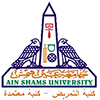Vision
The committee promotes and protects the dignity, rights, and welfare of research subjects and academic personnel at the Faculty of Nursing, Ain Shams University, by providing ethical guidelines and education for scientific research and by providing the necessary resources to monitor and implement ethical decisions related to master's and doctoral theses and scientific research.
Mission
The committee is responsible for making decisions on ethical issues related to scientific research. The Ethics Committee consists of diverse disciplines and sectors, including balanced scientific, legal, and religious expertise, distributed across ages, genders, and ethnicities, representing the interests of the community. This committee is responsible for developing appropriate guidelines based on established ethical principles for scientific research, in accordance with the societal values surrounding the Faculty of Nursing at Ain Shams University.
Objective
The committee aims to ensure the preservation of human dignity, rights, safety, and health in research, as well as those of the community at large, within the framework of the university and faculty research plan. This is in accordance with ethical research policies derived from the provisions of the Declaration of Helsinki and its annexes, as well as the guidelines proposed by the World Health Organization in the year 2000.
General Ethical Guidelines for Health Research:
The general ethical guidelines for health research are divided into three main principles:
First:
Respect for Human Rights, which includes:
-
Ensuring honesty with the research sample.
-
Obtaining informed consent from the research participants regarding all scientific aspects and social risks of the study.
-
Allowing participants to withdraw from the research at any time, according to their wishes.
-
Providing trust and transparency in dealing with research participants.
-
Preserving the privacy and confidentiality of information obtained during the research.
-
Respecting the customs, traditions, ethics, and culture of the community.
-
Providing adequate safeguards for the rights of persons with disabilities, those lacking legal capacity, or those unable to make decisions.
-
Ensuring that the research complies with the local laws of the community.
-
For research funded from outside the country, the objectives must be clear, the outcomes should benefit both countries, pose no risks to the research sample, and align with the traditions, customs, culture, and laws of the country.
Second:
Benefits to the Individual and Society Through Research Activities, including:
-
Designing the research in a way that benefits members of the community and allows its results to be generalized.
-
Defining and identifying the intended benefits of conducting the research for human health and well-being, as well as clarifying the potential risks that may arise during the research.
-
Human research must only be conducted under expert supervision, with full responsibility borne by the supervisor and researcher—not the subject of the study.
Third:
Justice, which includes:
-
The research sample must include diverse segments of society (gender, ethnicity, beliefs and affiliations, and socioeconomic levels).
-
Avoiding the selection of individuals merely because they are readily available or easily accessible.
-
Fair distribution of risks and benefits among research participants.
4. Scope of the Committee’s Work:
-
All basic and applied research fields involving researchers and their assistants, whether within the Faculty of Nursing / Ain Shams University or outside, such as in hospitals, schools, maternal and child care centers, elderly homes, centers for individuals with mental or physical disabilities, as well as family health services in homes, residential communities, and rural or urban environments.
5. Specifications Required in the Scientific Research Protocol:
-
Detailed information on the steps to be followed in the research.
-
Approval from the committee to conduct the research.
6. Principles of the Committee’s Work:
-
Emphasis on obtaining informed consent from the research sample according to the committee's established rules.
-
The research objective must serve the community.
-
Applied research must have been previously tested on animals.
-
Any risks must be justified by a positive benefit to the sample.
-
The research must only be conducted by specialists in the relevant field.
-
Any physical or mental suffering of the research sample must be avoided.
-
No research should be conducted that may result in disability or complications that could lead to death.
-
Necessary resources must be provided to conduct the research.
-
Participants must have the freedom to withdraw from the research at any stage.
-
The researcher must stop the research if they sense it may lead to serious risks or injuries to the research participants.
-
The research must be reviewed by an evaluator not affiliated with the student's academic department.
-
The committee must not include faculty members such as the dean of the college, vice-deans, or heads of academic departments.
